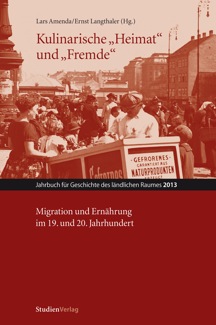Bohnen, Speck und Schnaps oder Weißbrot, Bananen und Salami?
Über das Konflikt- und Kooperationspotenzial der Pidgin-Essenskultur auf Bauernhöfen in der Schweiz in den fünfziger und sechziger Jahren
DOI:
https://doi.org/10.25365/rhy-2013-9Abstract
One of the structural changes of the post-war period on Swiss farms involved the partial replacement of family members and labourers by seasonal migrants from southern Europe. Frequently these migrants were recruited by representatives of the farmers and, while working in Switzerland, lived on farms from March until November. Given that in agriculture, unlike industry, people generally work, live and eat together, the issues of food as well as language became potential sources of conflict and cooperation on farms where seasonal migrants were present. While most observers have focused on the conflicts thrown up by this new labour market, this paper also emphasises the potential for communication, mutual understanding and cooperation in households where seasonal farm workers were present. Where food and culinary preferences were concerned, the conflicts were rather disguised as they usually surfaced at the kitchen table. While farmers’ wives often saw themselves as having an entitlement to (and indeed a duty to) educate the mostly young and male migrants in culinary matters, farmers’ daughters tended to be more interested in the exotic aspects of the food preferences of the visiting migrants. A notable result of these kitchen table interactions concerning what counted as acceptable food was the development of a new pidgin food culture.


